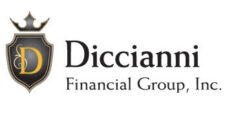The next series of articles will cover the basics of estate planning, what it means, why it is important, and how you can have it work for you.
If you own property you have an estate, and some decisions to make about how you will take care of yourself and your loved ones. Also you can find ways to save money, provide for your well-being, and minimize the tax burden on that estate. Estate planning also involves identifying those assets and how they ultimately will be distributed to your family and friends.
The first step is to organize and simplify your life. This may very well be the most time consuming initially, but will be well worth the time spent now. A well-organized estate will allow your assets to move fluidly to those you love. It will also help you in understanding fully what you have and how it can help you while you are alive.
The best way to get organized is to use a spreadsheet program of some type and chart out your expenses as they are paid. The process I use is this, as I pay a bill I enter it onto my spreadsheet and every month or quarter I can estimate what was spent. I list everything from mortgage payments to groceries. Across the top of spreadsheet are the categories of expenses and the left hand side are the months of the year.
As a result of this information I have a handle on all of my expenses for a month right at my fingertips. Knowing this is important because you will know if you have a surplus or deficit every month.
The second step is to manage your assets while you are alive. By active management you will minimize taxes, shield assets from potential creditors, protect your financial privacy, maximize the use of your assets and potentially increase your income. A good financial planner can assist you in managing your assets from providing assistance to handling everything.
There are many strategies for directing the distribution of assets after you are gone. Trusts and a will are the documents that you will need to direct your wishes. They enable you to direct who will get what, and it can also provide enough cash to cover the expenses of dying, which are funeral costs, debts and taxes. These documents will also control what can and cannot be done with your property, appoint one or more people to manage and settle your estate and appoint a guardian to care for your underage children.
Without a will and or a trust there are plenty of governments that will want your money. For example your home state may be able to tax your personal assets. Any state that you own real estate in may be able to tax the property value and to make matters worse the federal government may be able to tax anything, no matter where it is. If you try to give away too much to avoid taxes, you could be taxed on that, too.
As part of the financial planning process, you will need to work closely with your advisor to determine who you will choose to manage any trusts, follow instructions in your will, and care for loved ones if you can’t. There is also tax planning, investment management, and determination of all the legalities involved. It is best to hire a professional to get all of these elements in a row. Remember too that a good financial planner will work closely with your attorney and accountant to achieve your goals. Contact us to learn how we can help.
Taking care of you is also a vital step in this process. Someday, you may be unable to make your own medical or financial decisions. You can prearrange for someone to be there to make decisions according to your wishes. There are three simple legally binding documents that will let you name the person or people that can give specific instructions and general guidance. This is a vital piece to keeping a good safety net around your assets and your life.
Healthcare Power of Attorney will protect your health. This document must be signed by you and notarized. It is used to authorize someone you trust to make medical decisions for you if you cannot, and it provides a guideline for making day-to-day medical decisions. Some of these medical decisions include, taking certain medicines, performing surgery, radiation or chemotherapy and the use of long-term care, in your home or in a nursing facility.
The Living Will is an important document because it allows you to create a list of circumstances in which you would refuse life-sustaining treatments. An example of this is that you would not want to be kept alive on a ventilator if you had no chance of survival.
A Durable Power of Attorney is a document that authorizes someone to be your “attorney in fact” to handle all your financial affairs if you are not able to do so. It is a very useful document to be sure your real estate will be managed as well as your other investments and assets in the fashion you desire. You can make the powers effective upon signing only if you become incapacitated. There are two types of powers, general and limited. A general power of attorney gives someone the basic power over everything while a limited power of attorney limits what items can be controlled.
Without a Durable Power of Attorney, your finances will be handled by the courts, who will appoint a conservator to manage your finances, and the proceeds will be of public record.
Remember it is very important to have the proper documents in place and to get a handle on what you have and it’s current net worth. Once you accomplish this you will be able to rest easy knowing that your legal and financial lives are in good order.
Contact us to get started with your estate planning.

